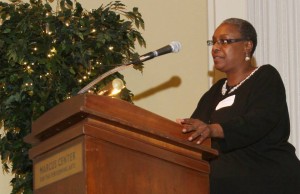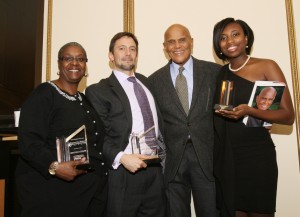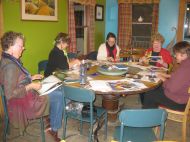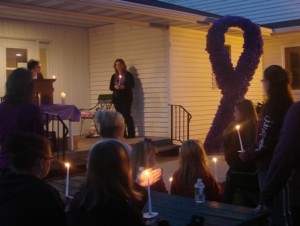This Guest Opinion is re-posted with permission from Danielle Tudor, author of this article. The original can be found at http://www.oregonlive.com/opinion/index.ssf/2014/03/rape_victims_should_not_be_afr.html.
I learned recently that Richard Troy Gillmore requested that his ninth parole hearing, which was scheduled for April 9, be postponed for another two years. To me, this is a victory in my ongoing battle to keep a dangerous pedophile-serial rapist behind bars, and I thank the people of my home city of Portland and my home state of Oregon for standing with me.
When I was barely 17 years old, Richard Troy Gillmore sexually assaulted and beat me in my childhood home. Today, 35 years after he raped me, I can speak openly about Gillmore’s attack. But, for a very long time, I said nothing publicly. I had placed an impassable gulf between the rape and my life. I was very, very ashamed of being known as a “rape victim,†and I called my assault anything but that. “Rape†sounded so awful and ugly. I have understood all too well the embarrassment, panic, fear and guilt a rape victim lives with on the inside. I was maimed, broken and wounded, even if you could not see the scars.
Perhaps you don’t believe that adult survivors of sexual assault live among you.
Well, we do, and there are many more of us than you think. I am the person who sits next to you in church, the clerk who helps you at the checkout counter, the woman who’s pumping your gas. I make your morning coffee. I am your house cleaner, your co-worker at the next desk over at the office. Last year, there were 89,000 reported rapes of women in the U.S. Over 20 or 30 years, that means perhaps two million survivors of rape are living among us. We should never be afraid to confront our attackers — at the police station, in court or at a parole hearing.
Statistics tell us of a great many men, women and children who have never told anyone about their abuse. More than four out of five victims never go to the police.
These victims have placed that same impassable gulf that I used between sexual assault and daily life. They fear that no one will believe them. Perhaps they were so afraid that they thought, “If I don’t tell, maybe I won’t be abused again.â€Â Chances are they were, anyway. Perhaps they were children whom someone should have protected — but that someone looked the other way. Perhaps these silent victims thought, “If I don’t talk about it, maybe I’ll forget.â€Â But I assure you that any victim remembers having been raped as if it were yesterday.
Another reason victims do not report sexual assault is their fear of facing the perpetrator in court. Along with eight other very young women, I reported Gillmore’s attack to the police. Later, all nine of us had to describe in court what Gillmore had done to us, as he looked on. Then his defense lawyer cross-examined us, insinuating that we could not be sure we were sitting across from the man who had raped us – even though he had already confessed to raping all of us!
When I left court, Gillmore’s own attorney admitted that any chance of parole for his client would be remote. But every two years, he has the opportunity for parole. As each hearing comes, and goes, I wonder how many more times I will be able to share the details of my rape in public before I cannot speak anymore. Each parole hearing is harder, not easier, than the one before.  After each hearing, I hate the fear that I have to learn to overcome all over again, day after day. You’re not likely to understand what I mean unless you, too, have been sexually assaulted.
After Gillmore’s eighth parole hearing, in June 2012, I was not sure I would be able to continue. Then I began to realize that this was precisely what my rapist was waiting for: He was counting on my faltering. I became determined to keep putting one foot in front of the other, to keep on moving forward. I hate the everyday fears that I have had to learn to manage all over again as a result of these hearings. Anyone who has been sexually assaulted knows what I mean.
Why do I continue to fight? It’s not from vindictiveness; it’s because Gillmore is not getting better. Psychologists who have examined him have called his potential for recidivism extreme. Remember, he victimized a huge number of vulnerable young women. Because of his crimes, too many lives and families have been changed forever. One victim committed suicide. Giving Gillmore another chance is jeopardizing another future victim.
Since 2008, public opinion has determined whether or not Gillmore is paroled. Your voices count – just as much as mine. So I humbly thank you for the fact that Gillmore has postponed his next parole hearing and I have two more years to marshal my resources. I count you, the citizens of Portland and of Oregon, as among the best of those resources.
Danielle Tudor lives in Oregon







Guest Opinion (The Oregonian): Rape victims should not be afraid to report crimes
This Guest Opinion is re-posted with permission from Danielle Tudor, author of this article. The original can be found at http://www.oregonlive.com/opinion/index.ssf/2014/03/rape_victims_should_not_be_afr.html.
I learned recently that Richard Troy Gillmore requested that his ninth parole hearing, which was scheduled for April 9, be postponed for another two years. To me, this is a victory in my ongoing battle to keep a dangerous pedophile-serial rapist behind bars, and I thank the people of my home city of Portland and my home state of Oregon for standing with me.
When I was barely 17 years old, Richard Troy Gillmore sexually assaulted and beat me in my childhood home. Today, 35 years after he raped me, I can speak openly about Gillmore’s attack. But, for a very long time, I said nothing publicly. I had placed an impassable gulf between the rape and my life. I was very, very ashamed of being known as a “rape victim,†and I called my assault anything but that. “Rape†sounded so awful and ugly. I have understood all too well the embarrassment, panic, fear and guilt a rape victim lives with on the inside. I was maimed, broken and wounded, even if you could not see the scars.
Perhaps you don’t believe that adult survivors of sexual assault live among you.
Well, we do, and there are many more of us than you think. I am the person who sits next to you in church, the clerk who helps you at the checkout counter, the woman who’s pumping your gas. I make your morning coffee. I am your house cleaner, your co-worker at the next desk over at the office. Last year, there were 89,000 reported rapes of women in the U.S. Over 20 or 30 years, that means perhaps two million survivors of rape are living among us. We should never be afraid to confront our attackers — at the police station, in court or at a parole hearing.
Statistics tell us of a great many men, women and children who have never told anyone about their abuse. More than four out of five victims never go to the police.
These victims have placed that same impassable gulf that I used between sexual assault and daily life. They fear that no one will believe them. Perhaps they were so afraid that they thought, “If I don’t tell, maybe I won’t be abused again.â€Â Chances are they were, anyway. Perhaps they were children whom someone should have protected — but that someone looked the other way. Perhaps these silent victims thought, “If I don’t talk about it, maybe I’ll forget.â€Â But I assure you that any victim remembers having been raped as if it were yesterday.
Another reason victims do not report sexual assault is their fear of facing the perpetrator in court. Along with eight other very young women, I reported Gillmore’s attack to the police. Later, all nine of us had to describe in court what Gillmore had done to us, as he looked on. Then his defense lawyer cross-examined us, insinuating that we could not be sure we were sitting across from the man who had raped us – even though he had already confessed to raping all of us!
When I left court, Gillmore’s own attorney admitted that any chance of parole for his client would be remote. But every two years, he has the opportunity for parole. As each hearing comes, and goes, I wonder how many more times I will be able to share the details of my rape in public before I cannot speak anymore. Each parole hearing is harder, not easier, than the one before.  After each hearing, I hate the fear that I have to learn to overcome all over again, day after day. You’re not likely to understand what I mean unless you, too, have been sexually assaulted.
After Gillmore’s eighth parole hearing, in June 2012, I was not sure I would be able to continue. Then I began to realize that this was precisely what my rapist was waiting for: He was counting on my faltering. I became determined to keep putting one foot in front of the other, to keep on moving forward. I hate the everyday fears that I have had to learn to manage all over again as a result of these hearings. Anyone who has been sexually assaulted knows what I mean.
Why do I continue to fight? It’s not from vindictiveness; it’s because Gillmore is not getting better. Psychologists who have examined him have called his potential for recidivism extreme. Remember, he victimized a huge number of vulnerable young women. Because of his crimes, too many lives and families have been changed forever. One victim committed suicide. Giving Gillmore another chance is jeopardizing another future victim.
Since 2008, public opinion has determined whether or not Gillmore is paroled. Your voices count – just as much as mine. So I humbly thank you for the fact that Gillmore has postponed his next parole hearing and I have two more years to marshal my resources. I count you, the citizens of Portland and of Oregon, as among the best of those resources.
Danielle Tudor lives in Oregon
Posted in Commentary, Community.
rev="post-131" No comments
By events – May 20, 2014